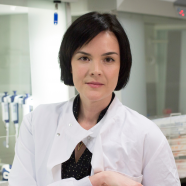
I am interested in understanding how human speech and language are biologically encoded, how these abilities evolved, and the causes of language related disorders. I was drawn to this research area during my DPhil at the University of Oxford that sought to understand the functions of genes that cause speech and language disorders. I demonstrated how patient mutations in one such gene, FOXP2, cause altered neurodevelopment in mouse and human models, and identified a relationship between FOXP2 and another gene known as CNTNAP2, showing that they represent a novel genetic mechanism shared across clinically distinct language-related syndromes. In 2016, I was awarded a Max Planck Research Group (MPRG) Grant and a Human Frontiers Science Program (HFSP) Research Grant to establish a research group at the Max Planck Institute for Psycholinguistics with the goal to use bats for comparative studies of speech and language relevant traits. In particular, we have focused on the abilities of bats to learn novel vocalisations (vocal learning), which in humans, allows us learn the huge repertoire of sounds we use to communicate via spoken language. Our work has now demonstrated the feasibility of neurogenetic studies in bats, identified sites of action for key language-related genes in the brains of vocal learning bats, and their potential to contribute to our understanding of human speech and language. This new research area is allowing us to characterise the genetics and neural circuitry underlying vocal learning in mammals and will ultimately inform our understanding of spoken language in humans.
Sonja Vernes leads the Neurogenetics of Vocal Communication Research Group that studies the neurogenetics of vocal communication in mammals, as a way to understand the evolution and biological basis of human speech and language. Her research uses diverse, interdisciplinary approaches including:
This research program is pioneering the use of bats as the first tractable mammalian model of vocal learning in which it is possible to explore the neuro-genetic underpinnings of this complex behavioural trait. This highly interdisciplinary approach aims to answer fundamental questions about how vocal learning evolved, how it is biologically encoded, and inform our understanding of human spoken language and language disorders.